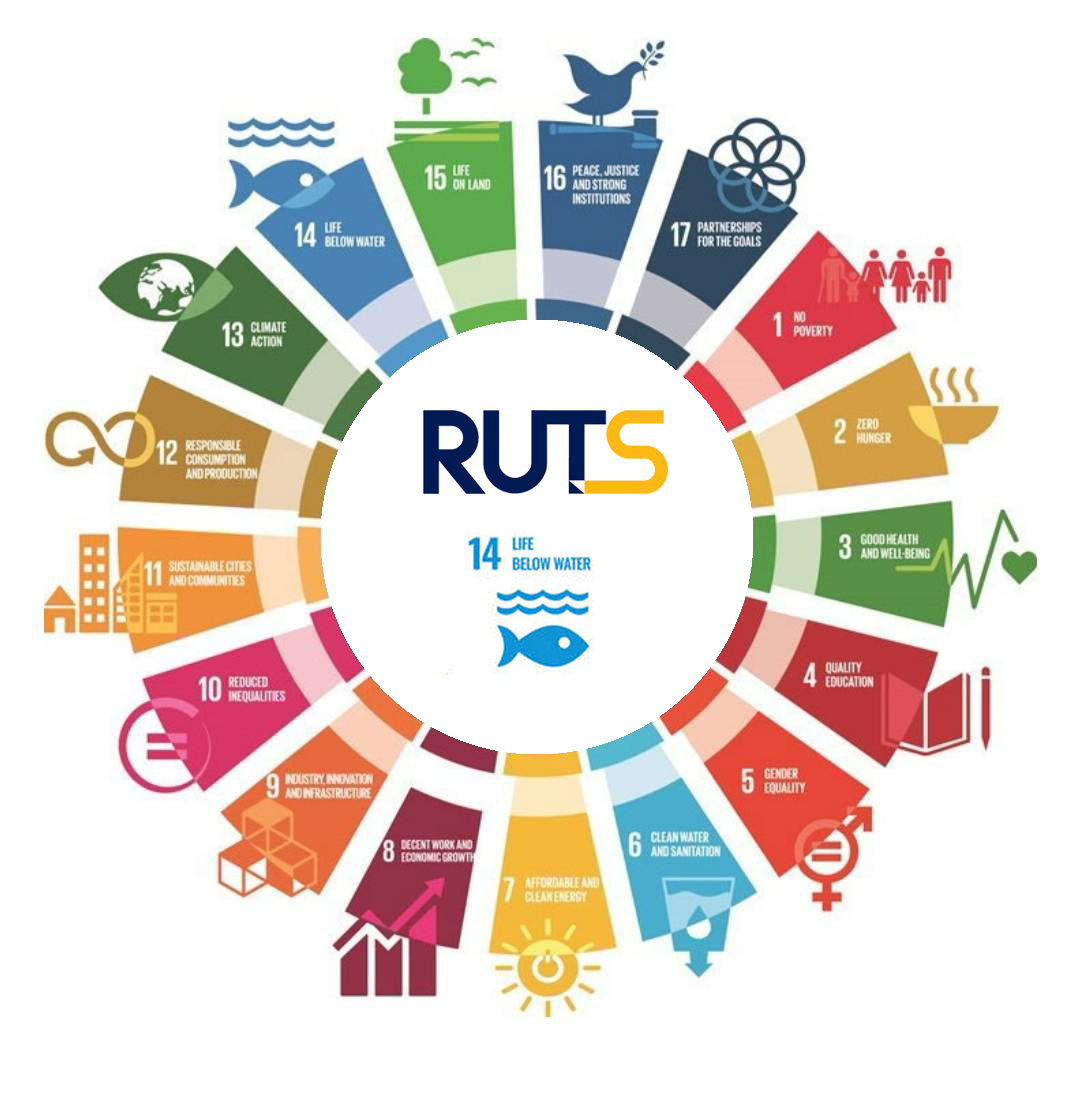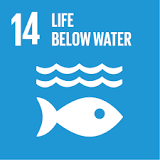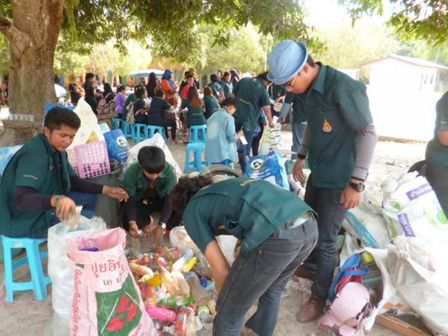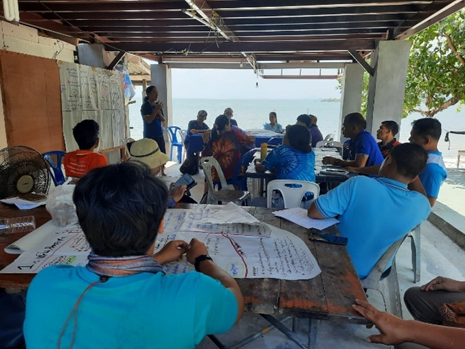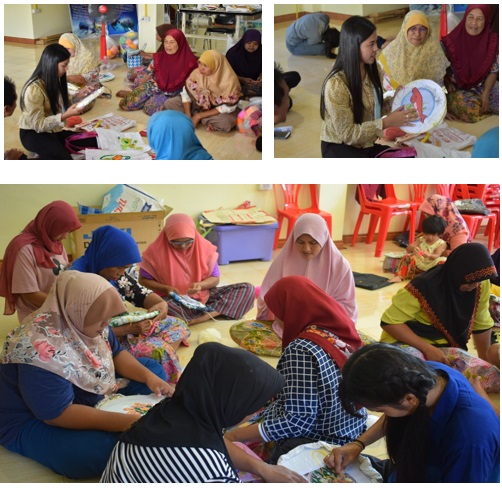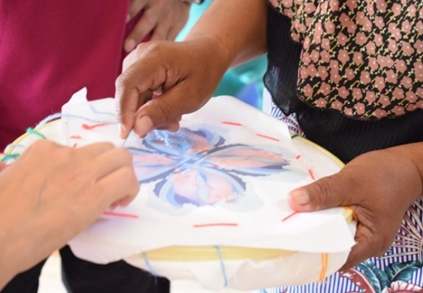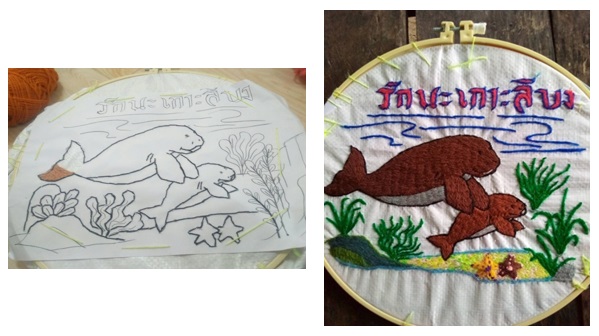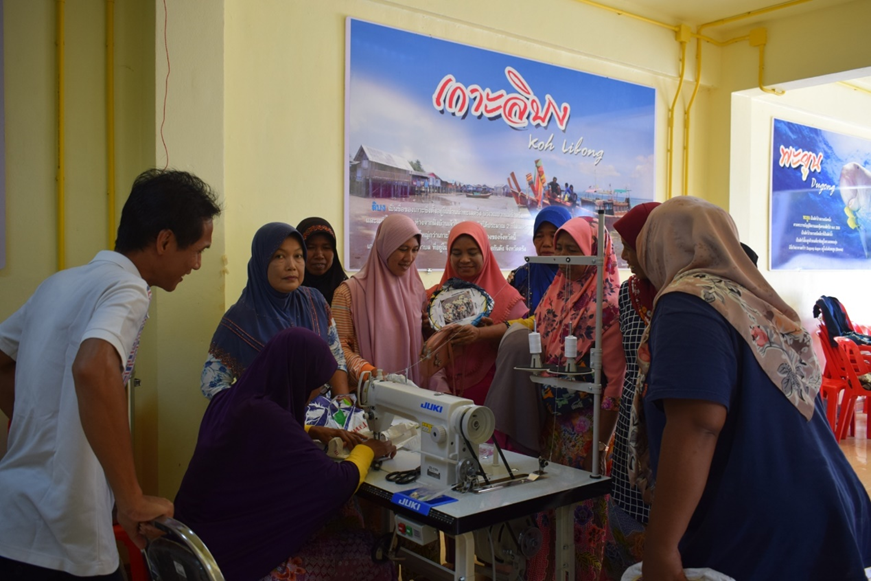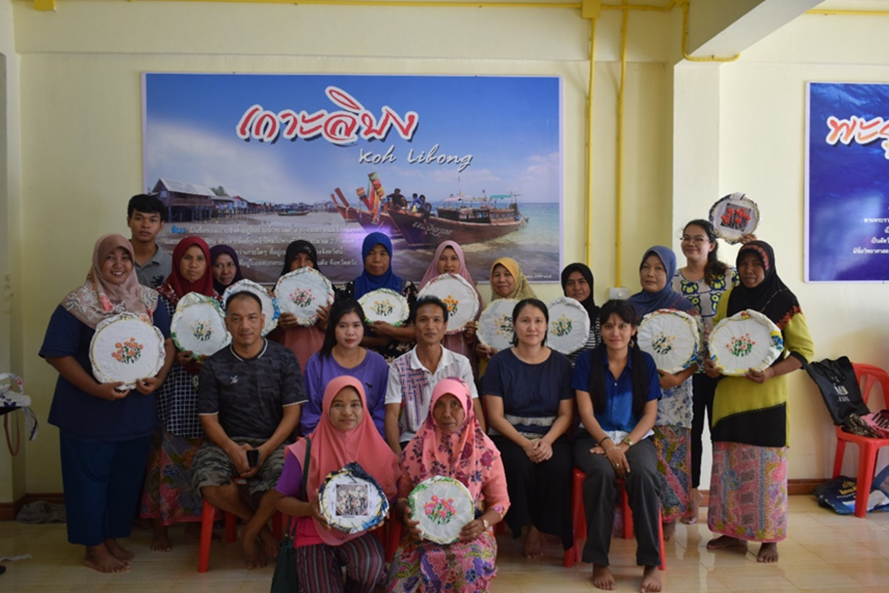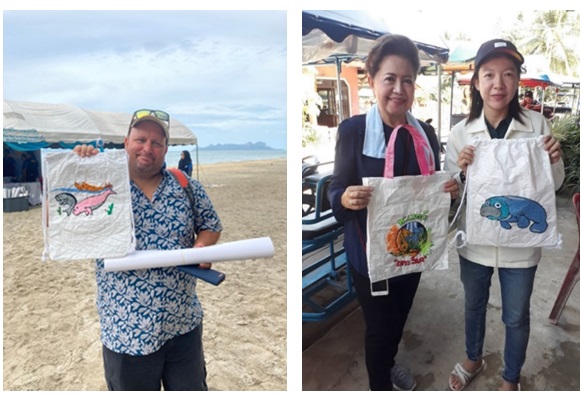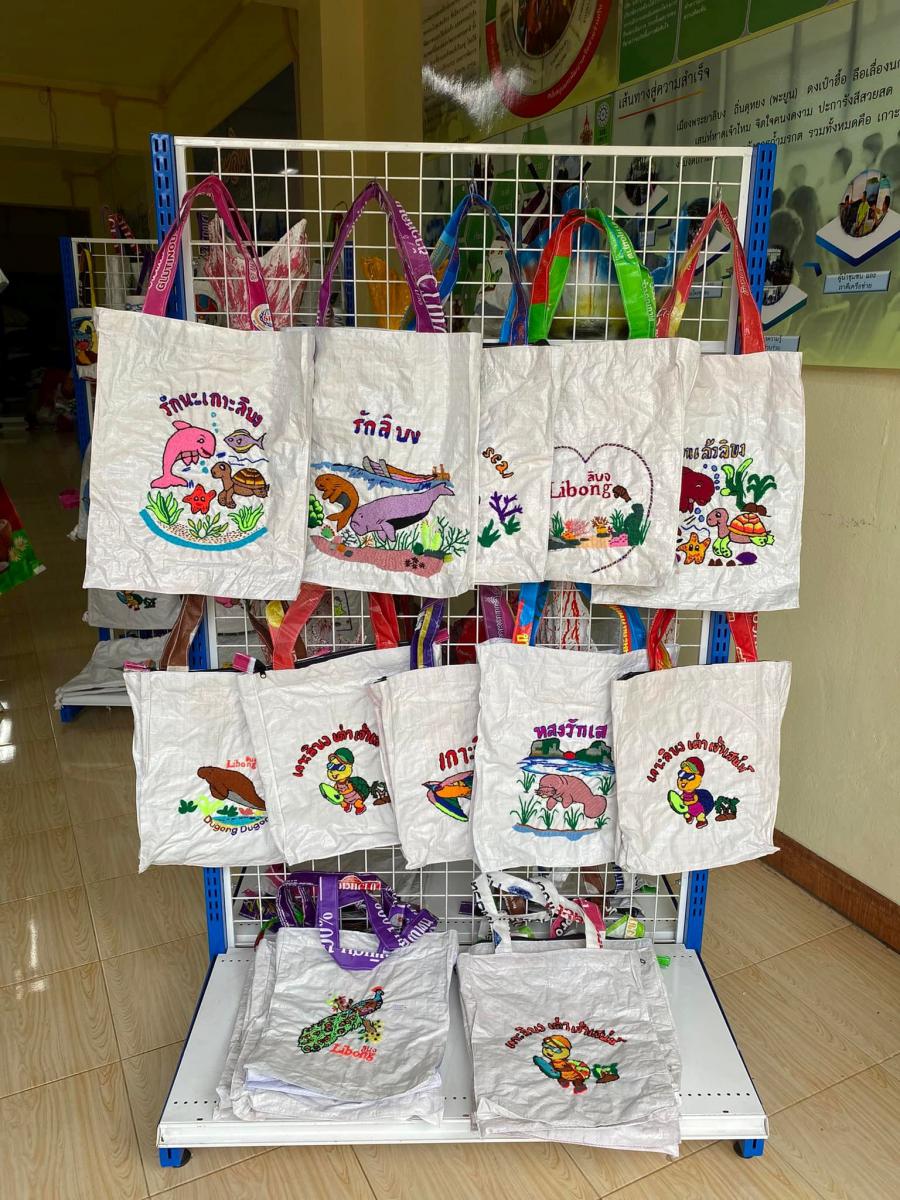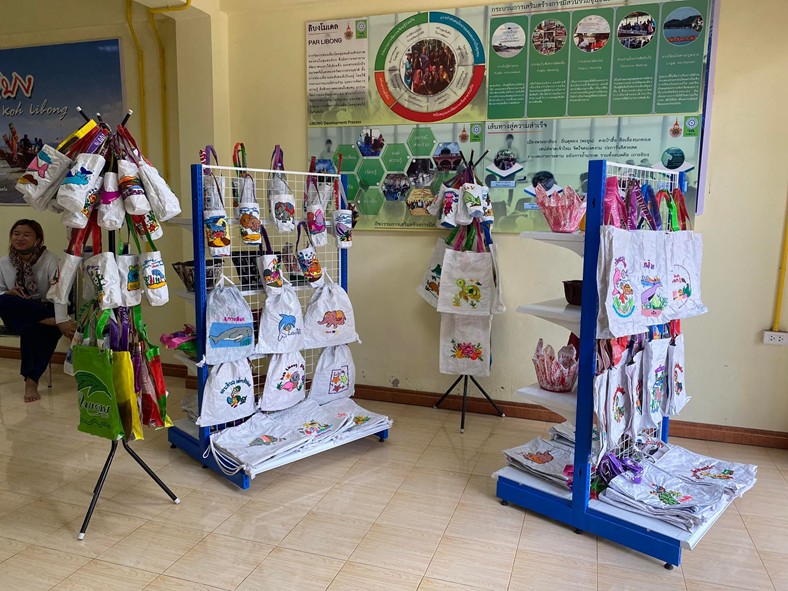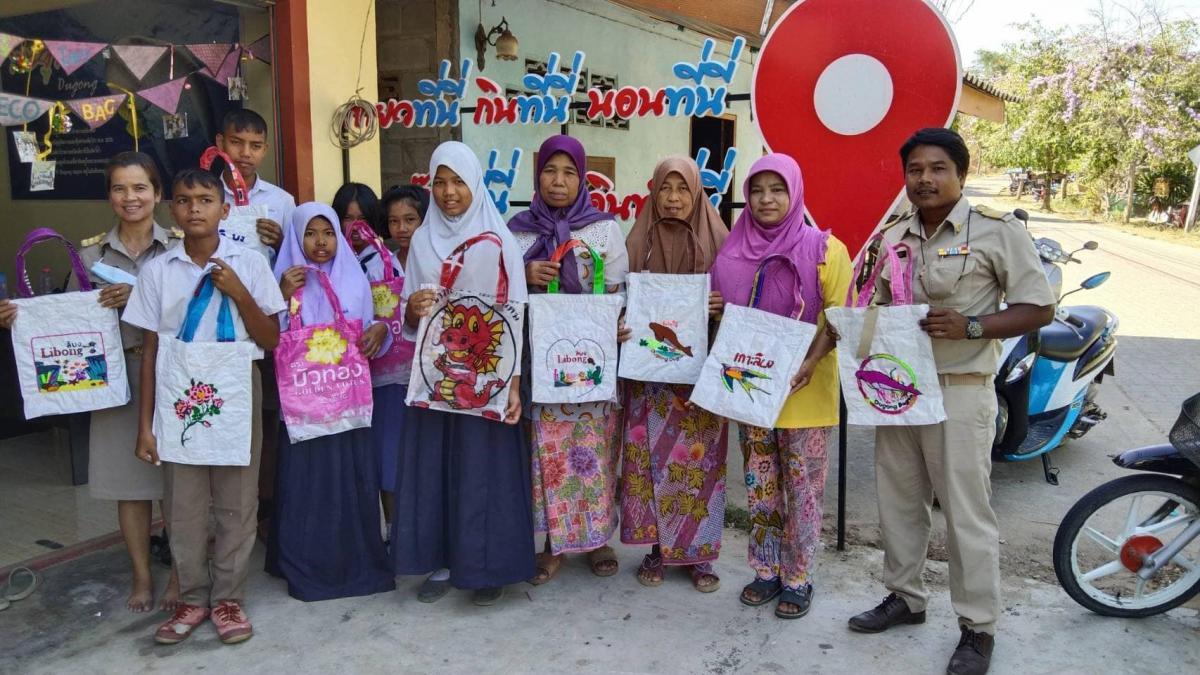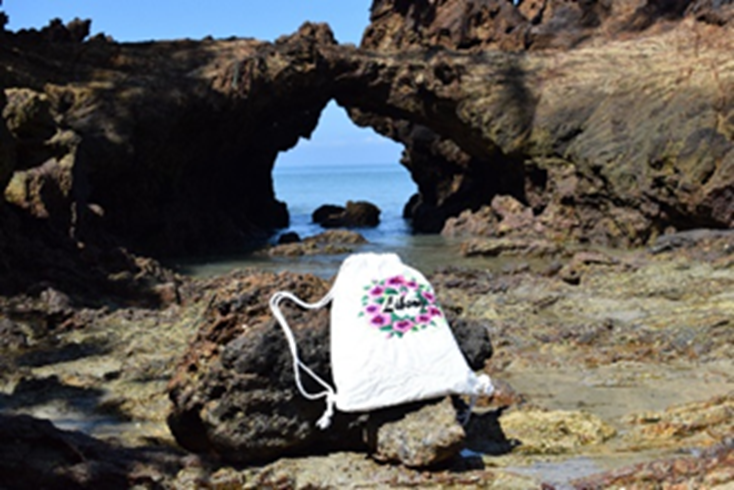|
Research and Innovation
Upcycling Products to Enhance Community Solid Waste Management in Libong Island, Trang Province, Thailand
March 4, 2022
Indicator 14.2.2
Many countries including Thailand, have focused and worked on finding solutions to problems. Try to find methods and policies that can lead to reducing the problem of municipal solid waste and marine debris. The approach to solving the problem of solid waste that is important to consider is reducing the amount of solid waste at the source before it is put into the final disposal process, by reducing, reusing, and recycling.
Rajamangala University of Technology Srivijaya (RUTS) is committed to reducing the problem of municipal solid waste and marine debris through RUTS research and innovation. Assistant Professor Aneak Sawain and his research team was working on the research and action plan to reducing plastic waste, which the title is “Upcycling Products: Innovation to Enhance Community Solid Waste Management Mechanisms in Libong Island, Trang Province”. The research and actions called “Upcycling”, which is a process of transformation to create value for solid waste through creativity in design, technique, process, technology or innovation. This leads to the production of new products that are practical, beautiful and have increased commercial value. Which upcycling products are being discussed and becoming more popular, because it is a product that causes the use of renewable materials and environmentally friendly. Therefore, this research and actions aims to develop innovative upcycling products from solid waste in the Koh Libong community. The new products produced from this research will focus on the development of products that can be used. By conducting research, they can develop upcycling products with a group of housewives who were developed to be community innovators. With the integration of innovation development with handicrafts according to the basic abilities of the housewives’ group that were developed to be community innovators. Create upcycling products to be eco bags and other products from using rice sacks as the main raw material. The eco bags produced can be used to replace plastic bags through supporting plastic bag reduction activities for green tourism communities, to reduce the number of plastic bags in the area of Koh Libong community. Together with promoting the sale of upcycling products as eco-friendly bags and other products to tourists, including those who are interested.
Implementation of research projects and action plans are designed to be appropriate, to achieve the goals and be successful in the operation. It takes into account both the community context and the basic skills of the target groups. There is a process of creating community participation through the selection of target groups with community leaders. The design of the operating method and the time limit for the activities to be in line with the needs of the target groups and not affect the main tasks. The operating procedures are shown in detail as follows. The first step is the practice training for the housewives group. The organization of the activities found that the housewives’ group who participated in the project cooperated very well. Each housewife is interested and intends to practice following the trainer, demonstrate the ability to develop as a community innovator. Because at the beginning of the project. The interest and determination in the work of the villagers is very important in the development to become a community innovator.
The second step provides support for self-training in producing eco bag from sacks without embroidery. Which aims to bring eco-friendly bags from sacks without embroidered patterns to use for plastic bag reduction activities for green tourism communities. The goal is to create activities to promote the reduction of plastic bag waste in the Koh Libong community.
The third step provide support for self-training in producing eco-friendly bags from sacks by making patterns on sacks and sewing, sold to tourists and people who are interested. To be used both in the Koh Libong community area and used in other areas. This is a guideline to help reduce plastic bag waste every time the bags are used to save the environment.
The fourth step building an innovative community for upcycling products for reuse to reduce the amount of plastic bags in the area of Koh Libong community. The goal is to create activities to promote the reduction of plastic bag waste in the Koh Libong community. Through the implementation of plastic bags reduction activities for the community of green tourist attractions. By using eco bag products from sacks as borrowing and returning bags at establishments, shops, accommodation and resorts for villagers including tourists, to bring eco bags to borrow - return to use as a replacement for plastic bags.
The step five selling eco bags from sacks with hand patterned. That is beautiful, making it interesting to tourists who visit and buy the products. Which is a mechanism for removing waste from the Koh Libong community by tourists who buy upcycling products made from solid waste or residual materials in the community. There are also other forms of sales promotion such as online and in-store sales exhibition booths.
The sixth step is to develop into a learning area for upcycling products. It is another way to disseminate to youth, students and interested parties. Which can support the creation of originality, inventions and innovations. This is to create sustainability in the development of personnel in the community or those who are interested in applying the knowledge to use for the development of their own community.
The results of this research and action can be applied as a model for developing other communities to create community products that are environmentally friendly. Able to promote activities to support the aging society in the community area. It is also a guideline for economic development in the form of the SDG model and development of green tourism communities to be sustainable in environmental management in the future.
Related Links: https://www.facebook.com/Libong-Upcycling-Project-105392424643244/
|
||||

